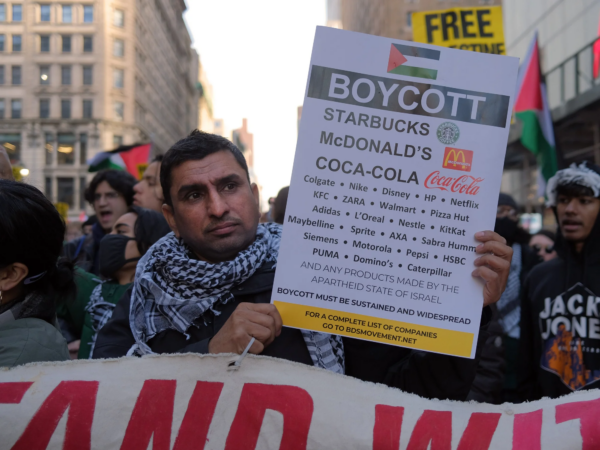US brands like McDonald’s, Starbucks, Coca Cola and Pizza Hut are facing mounting backlash in the Middle East as tensions in Gaza rise
- Sales at fast-food brands took a hit again last quarter after boycotts in the Middle East.
- Chains from McDonald’s to Starbucks are still feeling the pressure of consumers seeking alternatives.
- It marks the second full quarter of major American brands feeling the boycotts since Israel’s invasion of Gaza.
For the second quarter in a row, America’s biggest fast-food brands continued to see their sales hit by consumer boycotts in the Middle East.
McDonald’s said last week that it took a sales hit from “the ongoing war in the Middle East” at restaurants in that part of the world. The effect was big enough to outweigh sales increases in Japan, Europe, and Latin America, CEO Ian Borden said on the company’s first-quarter earnings call.
Same-store sales in the segment, which consists of restaurants licensed to third parties instead of company-owned locations, fell 0.2%.
American brands from Domino’s to the Golden Arches started to feel the effects of boycotts shortly after Israel’s invasion of Gaza last October.
Sales at Starbucks took a hit again last quarter after boycotts in the Middle East
Some consumers in the Middle East and other parts of the world have avoided brands associated with the US, citing America’s support of Israel.
While sales in the Middle East represent a small percentage of overall revenue for most large brands, the hit has been persistent over the past several months.
“We’re not expecting to see any meaningful improvement in the impacts on that until the war is over,” McDonald’s CEO Chris Kempczinski said on last week’s earnings call.
At Starbucks, the problems in the Middle East took a toll on second-quarter international sales, CFO Rachel Ruggeri said. Comparable store sales abroad fell 6% during the coffee chain’s second quarter, due in part to lower sales in the Middle East as well as in other areas of the world, such as China.
Comparable sales in North America, which fell 3%, may have also suffered because of consumers’ opinions about the company and its role in the Middle East, analysts at Bank of America wrote on Monday.
The analysts wrote that “a social media narrative around [Starbucks’] position on the Middle East may be the primary driver” of slower sales in the US. Many of the boycott efforts have relied on social media and technology to spread, such as an app that lets coffee drinkers find other cafes near Starbucks locations.
Starbucks has previously said that the company “has never contributed to any government or military operation in any way.”
In January, CEO Laxman Narasimhan said that the events in the Middle East were even convincing some fair-weather customers in the US to stay away from Starbucks stores.
The boycotts also affected the latest same-store sales at Pizza Hut and KFC, both operated by Yum! Brands, the company said in an earnings call last week. Same-store sales at KFC, for instance, fell 2% during the company’s first quarter.
But the company also said that the effects of boycotts on its brand are starting to dissipate, CEO David Gibbs said during the call. “Time is usually the answer to most of those problems,” Gibbs said.
Business Insider


Leave a Reply
You must be logged in to post a comment.